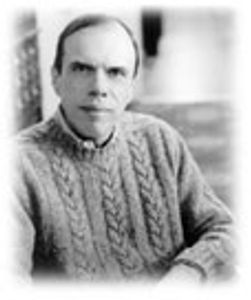
Catawba College’s first-year students have prepared for their first semester in college over the summer. To do so, they’ve read from a text by historian turned science editor, author Edward Tenner.
Tenner’s “Why Things Bite Back” is Catawba’s summer reading selection for first-year students. The book, published in 1996, examines the unintended (positive and negative) consequences of technology and helped gain Tenner a worldwide cult-following. Known for his wit and droll humor, Tenner’s writing style has been termed “approachable.” He offers profound insights and details about society’s commonplace technological advances. Some of these include air bags that were designed to save lives but which have killed infants; the gypsy moth introduced to the U.S. in the 1800s with the expectation that it would found a silk industry, but now requires expensive control methods; or antibiotics introduced in the 1940s and the subsequent evolution of bacteria that are resistant to them.
Dr. Philip Acree Cavalier, assistant academic dean and director of the First-Year Seminar program, noted that the summer reading provides first-year students with an opportunity to participate in a common intellectual dialogue. That dialogue will begin during orientation in August and will continue in the various seminar groups. First-Year Seminar faculty will be sending guiding questions to each new student assigned to their groups. These questions are intended to help students begin to consider some of the more central issues Tenner raises in his text.
“Tenner’s book will introduce students to college-level academic discussions in their first few days on campus, and begin a conversation that will be a central part of their experience throughout their first year at Catawba,” explained Acree Cavalier.
On Tuesday, September 27 between 7:30 and 8:30 p.m. in Hedrick Theatre on campus, Catawba’s First-Year Experience will host a BookRevue, coordinated by Dr. Sheila Brownlow, a professor of psychology and director of the Catawba College Honors Program, and Dr. Barbara Hetrick, vice president and dean of the college. This event, which is free and open to the public, will bring together faculty and experts in the community to discuss relevant issues and show how Tenner’s ideas are applicable and important to people in all academic and professional fields.
Participants in the Sept. 27th event include Dr. George Drum, a Catawba professor of Biology, presenting a view from Environmental Science; Dr Louise Kandl, physician, presenting a view from Medicine; and David Smith, a chemical engineer, presenting a view from Engineering. The discussion will be moderated by Dr. Hetrick. Conversation on Tenner’s book will continue over refreshments in Peeler Crystal Lounge immediately following the moderated panel discussion.
On Wednesday, November 9 and Thursday, November 10, Tenner will visit Catawba to discuss his book and other works with first-year students, faculty and interested members of the Salisbury community. Tenner will address his largest audience on campus at 11 a.m. Thursday, Nov. 10 in the Omwake-Dearborn Chapel and that event is also free and open to the public.
Tenner is an independent writer, speaker and consultant on issues of technology and culture. His most recent book is “Our Own Devices: The Past and Future of Body Technology.”
After obtaining an undergraduate degree from Princeton University and a Junior Fellowship of the Harvard Society of Fellows, he earned his Ph.D. from the University of Chicago. He held teaching and research positions in Chicago and became science editor of the Princeton University Press, publishing general interest books and launching competitive series in astrophysics, animal behavior, and earth sciences. While developing programs in the history of science and technology, an intellectually engaged Tenner resumed a writing career he had begun as an undergraduate.
In 1991, he received a Guggenheim Fellowship and was appointed a visitor at the Institute for Advanced Study. There he began a project on unintended consequences of technology that was published as “Why Things Bite Back.” His second book was developed while he was a fellow of the Woodrow Wilson International Center for Scholars in 1995-1996. He has been a visiting researcher in the Princeton departments of Geosciences and English, and at the Rutgers Center for Historical Analysis.
Tenner is now a senior research associate of the Jerome and Dorothy Lemelson Center for the Study of Invention and Innovation, National Museum of American History, and is also affiliated with the Center for Arts and Cultural Policy Studies of the Woodrow Wilson School, Princeton University. His essays, reviews and articles have appeared in many leading newspapers and magazines in the United States and the United Kingdom, but he now writes mainly for “U.S. News and World Report,” the “Wilson Quarterly,” “Technology Review,” “Raritan Quarterly Review,” “American Heritage of Invention and Technology,” and “Designer/Builder.”
